Key Cybersecurity Interview Questions in 2024
Discover the most important cybersecurity interview questions for 2024, designed to help candidates prepare effectively and impress hiring managers.
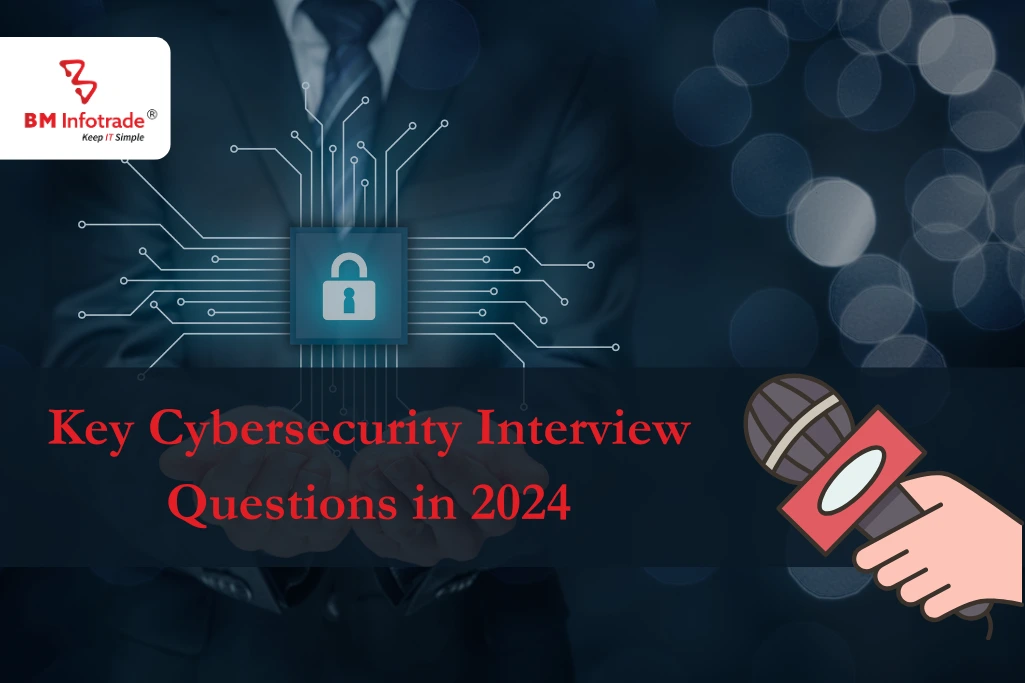
Key Cybersecurity Interview Questions in 2024
Table of Contents
Cybersecurity professionals must stay ahead to safeguard digital environments from attacks. Businesses and candidates must have Cybersecurity Interview Questions as 2024 approaches given the increased need. To pass this crucial phase, prepare for a range of cybersecurity interview questions.
Cybersecurity Interview Questions prepare cybersecurity enthusiasts for interviews. This resource tackles the dynamic and complicated nature of cybersecurity issues, whether you are a seasoned expert looking to change jobs or an aspiring specialist preparing for your first interview.
Critical cybersecurity interview questions from various experience levels and specialisations are included here. Cybersecurity Interview Questions encompass network security, threat intelligence, encryption, and incident response to complete cybersecurity. The answers' real-world examples and practical advice will assist cybersecurity professionals prepare for interviews and enhance their problem-solving skills.
Foundational Knowledge
Cryptography, Encryption
Explain encryption basics: Cybersecurity experts must understand encryption fundamentals. This requires understanding the methods and math that convert ordinary text to ciphertext. Explaining these ideas well shows a firm basis in data security.
Differentiate symmetric and asymmetric cryptography: Cybersecurity experts should explain symmetric and asymmetric cryptography. This includes explaining how symmetric keys are shared for encryption and decryption, unlike asymmetric cryptography's unique key pairs.
Discuss how public and private keys secure communications: Understanding public and private keys is crucial. Experts should explain how these keys are used in encryption and decryption to secure digital communication.
Read More: Evaluating Cyber Security Companies: Pros and Cons
Network Security
Firewall definition and significance: A cybersecurity expert should define firewalls and explain their role in network security. Understand how firewalls protect internal and external networks from unauthorised access and threats.
Explain IDS and IPS: Understanding intrusion detection and prevention is crucial. Cybersecurity professionals should explain how IDS analyses network traffic for suspicious activity while IPS actively prevents unauthorised access and destructive activity.
Discuss VPNs' role in network security: The security of network communication depends on VPNs. Cybersecurity professionals should address how VPNs encrypt data, protect privacy, and secure connections, especially in remote work and globalised digital interactions.
Operating System Security
Address common OS security vulnerabilities: Cybersecurity experts must find and fix operating system flaws. This entails identifying common vulnerabilities and strengthening operating system security.
Discuss regular patching and updates' importance: A secure operating system requires regular patching and updates. Cybersecurity professionals should stress the importance of timely updates in fixing vulnerabilities and preventing attacks.
Explain least privilege and access controls: Limiting security threats requires understanding least privilege and access constraints. Cybersecurity specialists should explain how these principles manage user access and reduce security protocols.
Cyber Attacks and Threats
Malware
Define malware types (viruses, worms, ransomware): Cybersecurity experts should define viruses, worms, and ransomware clearly. Threat identification and mitigation require understanding these distinctions.
Discuss malware detection and mitigation: Knowledge of proactive malware detection and mitigation is essential. Security experts should be able to explain antivirus software, behaviour analysis, and threat intelligence to combat various malware threats.
Users should be educated to prevent malware infections: Given the human factor in cybersecurity, professionals should emphasise user education. User education on safe internet practices and phishing prevention helps reduce malware infections.
Social Engineering
Define social engineering and its types: Social engineering and its many manifestations should be explained by cybersecurity specialists. Effective defence measures require understanding attackers psychological manipulation techniques.
To counter social engineering attacks, cybersecurity experts should explore practical methods beyond knowledge. This includes developing regulations, training, and creating a security-focused culture.
Promote employee training to resist social engineering: Employee training is key to preventing social engineering attacks. Cybersecurity specialists should emphasise regular training to keep personnel vigilant and immune to social engineering efforts.
Phishing: Explaining phishing attack features is a crucial skill for cybersecurity experts. This involves understanding attackers' false emails, bogus websites, and social engineering.
Discuss phishing prevention and response: Experts should recommend phishing prevention and response tactics beyond detection. Phishing-specific email filters, multi-factor authentication, and incident response procedures are needed.
Promote email security to prevent phishing: Email security is key to phishing defence. Cybersecurity professionals should emphasise the need for secure email, encryption, and advanced filtering in phishing prevention.
Security Design and Architecture
Trustless Architecture
Define Zero Trust principles: Zero Trust should be familiar to cybersecurity professionals. This requires understanding the concept of continuous verification and rigorous access rules, and not trusting anyone inside or outside the network boundary.
Talk about Zero Trust's pros and cons: Implementing Zero Trust has pros and cons. Professionals should discuss improved security, decreased attack surface, implementation challenges, and user experience issues.
Explain how organisations can adopt Zero Trust: Transitioning to Zero Trust demands strategy. Cybersecurity professionals should advise organisations on risk assessments, micro-segmentation, and security-aware culture during the transition.
Security Software Development
When discussing secure coding methods, cybersecurity professionals should emphasise their importance in software development. To avoid vulnerabilities, follow industry best practices, code reviews, and safe coding standards.
Understanding the role of DevSecOps in incorporating security into the development lifecycle is vital. To ensure software development security, experts should discuss DevSecOps, which emphasises collaboration between development, operations, and security teams.
To ensure secure software development, it is crucial to identify frequent vulnerabilities and promote recommended practices. Cybersecurity specialists should discuss injection threats, cross-site scripting, secure coding, code testing, and secure deployment.
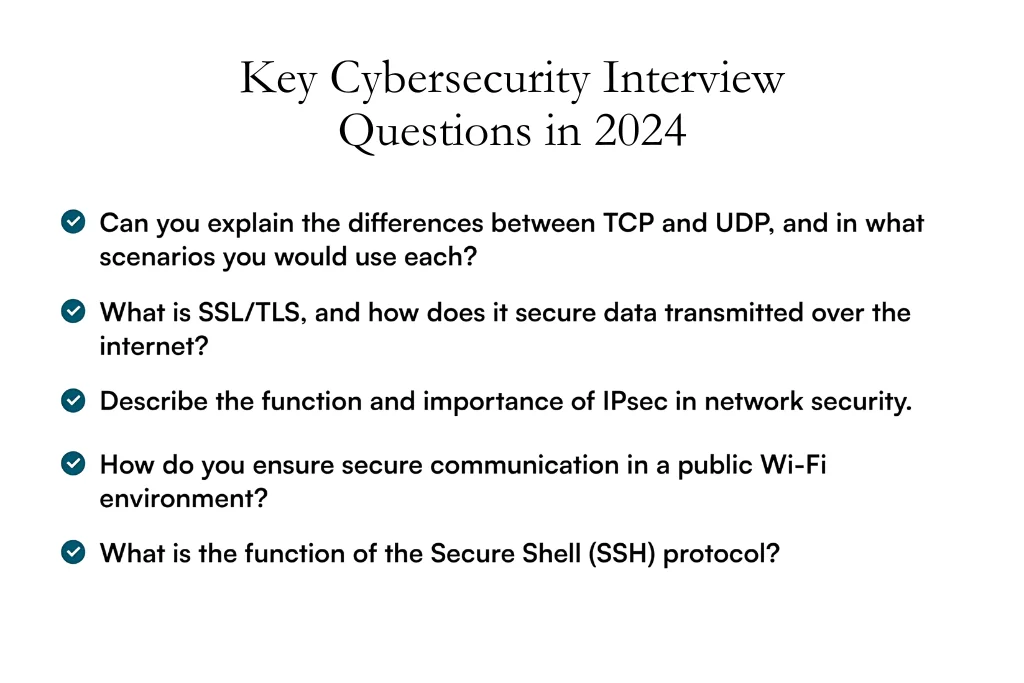
Forensics and Incident Response
Incident Response Plan
Explain robust incident response plan components: Cybersecurity specialists must be able to outline a solid incident response plan. This describes the actions, roles, and communication methods needed to respond to cybersecurity issues.
Discuss the need for coordinated security response: Stressing coordinated reaction is crucial. Cybersecurity experts should explore how IT, legal, and communication teams work together to improve incident response.
Emphasise incident response communication: Effective communication underpins incident response. Experts should stress the significance of clear and prompt internal and external communication to manage security incidents and retain trust.
Cyberforensics
Definition and cybersecurity importance of digital forensics: Digital forensics should be defined and explained in cybersecurity by specialists. Investigating and responding to cyber events requires thorough digital evidence analysis.
Discuss common forensic methods and tools: Digital forensics experts must know typical forensic methods and equipment. Knowledge of disc imaging, memory analysis, and forensic software helps collect, analyse, and preserve digital evidence.
Explain digital forensics ethics and law: Legal and ethical considerations are significant in digital forensics. Cybersecurity professionals should emphasise legality, permits, and ethics when performing digital investigations.
New Cybersecurity Trends
Security AI and ML
Discussion of AI and ML in danger detection: Cybersecurity specialists should study how AI and ML improve threat detection. Understanding how these tools analyse trends, spot anomalies, and promote proactive cybersecurity is required.
Explore AI cybersecurity challenges and opportunities: AI in cybersecurity presents issues and potential that must be understood. Professionals should discuss false positives, adversarial attacks, and security automation benefits.
Highlight AI-driven cybersecurity futures: Cybersecurity professionals must predict future events. This includes discussing AI-driven cybersecurity improvements, including threat intelligence, automation, and AI's role in combating growing cyber threats.
IoT Security
Explain IoT security issues: IoT security issues should be explained by cybersecurity experts. Insecure firmware, insufficient authentication, and cyber dangers to networked IoT ecosystems are discussed.
IoT network and device security strategies: Security methods for IoT networks and devices are crucial. To reduce IoT security threats, experts should address secure communication protocols, device authentication, and network segmentation.
Examine IoT security standards and regulations: Standards and regulations are key to IoT security. Cybersecurity professionals should examine how standards and laws make the IoT ecosystem more secure and build stakeholder trust.
Compliance with regulations (Data Protection Rules)
Discuss how data protection laws affect cybersecurity. Cybersecurity specialists must thoroughly discuss how data protection policies affect cybersecurity. GDPR, HIPAA, and other restrictions affect data processing, storage, and transmission in organisations.
Explain privacy by design and default: Understanding privacy by design and default is crucial. Experts should explain how incorporating privacy into systems, processes, and products from the start assures data protection compliance and promotes privacy.
Show the repercussions of data protection violations: Cybersecurity specialists should stress the seriousness of data protection legislation violations. Compliance with data protection laws is crucial due to legal penalties, reputational damage, and customer confidence erosion.
Read More: SOC Interview Questions: What to Expect and How to Prepare in 2024
Conclusion
In conclusion, 2024 cybersecurity interview questions offer significant information for experienced and prospective workers. Employers want cybersecurity experts with core knowledge, agility, and a comprehensive awareness of new risks.
Cybersecurity interview questions measure candidates' abilities to handle difficult situations, plan effective solutions, and keep ahead of the evolving cyber threat landscape. These interviews attempt to reveal a candidate's varied cybersecurity talents, from technical questions on encryption methods and network security to behavioural questions about problem-solving and ethics.
Success requires being current on cybersecurity advancements. 2024 cybersecurity interview questions emphasise cloud security, AI, and proactive threat intelligence, reflecting business goals. Fundamentals, problems, architecture and design, incident response, trends, regulatory compliance, and data protection techniques of cybersecurity.
In summary, answering cybersecurity interview questions requires a holistic and forward-thinking strategy for protecting digital ecosystems. Understanding cybersecurity interview questions in 2024 will help specialists succeed in a complicated and linked digital environment.

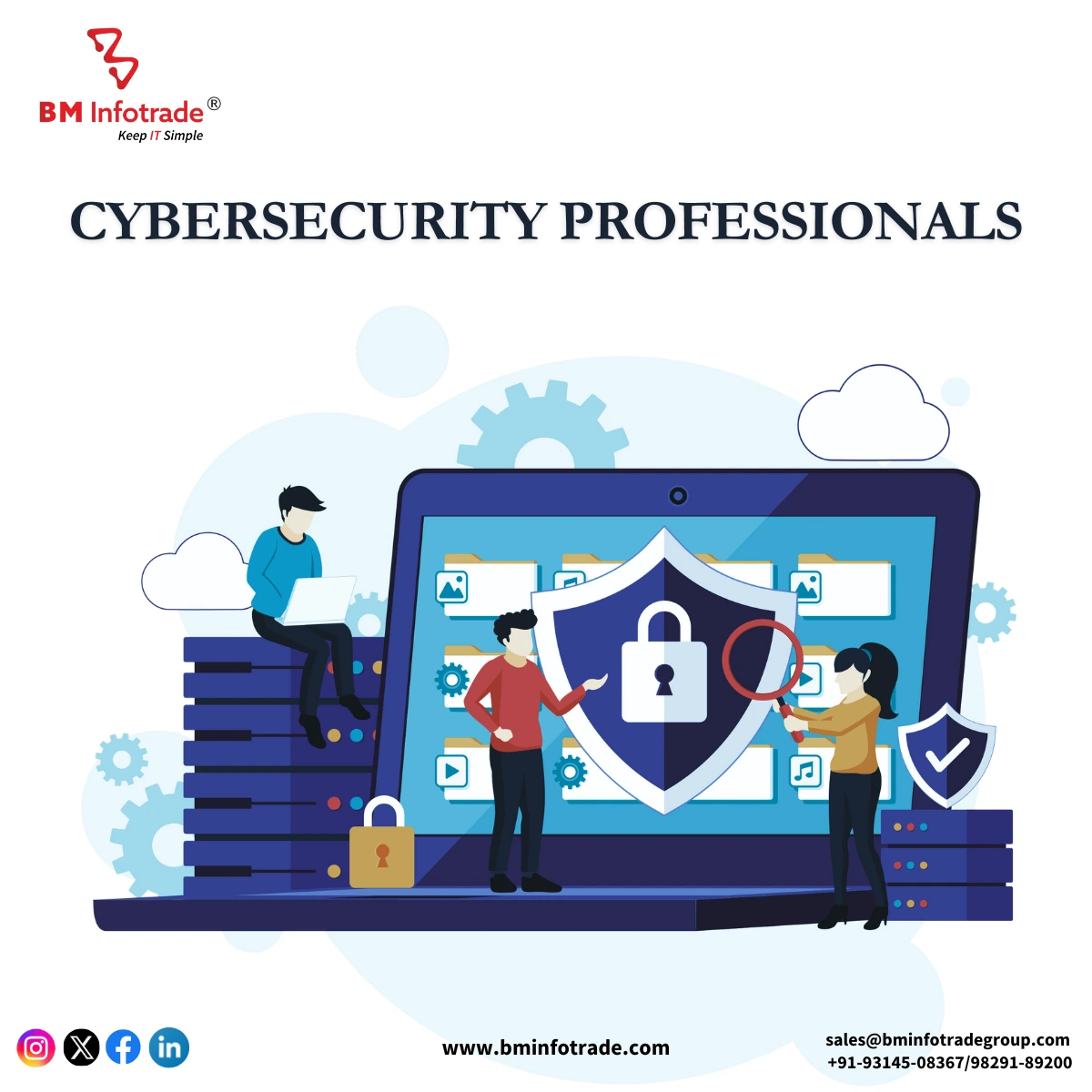
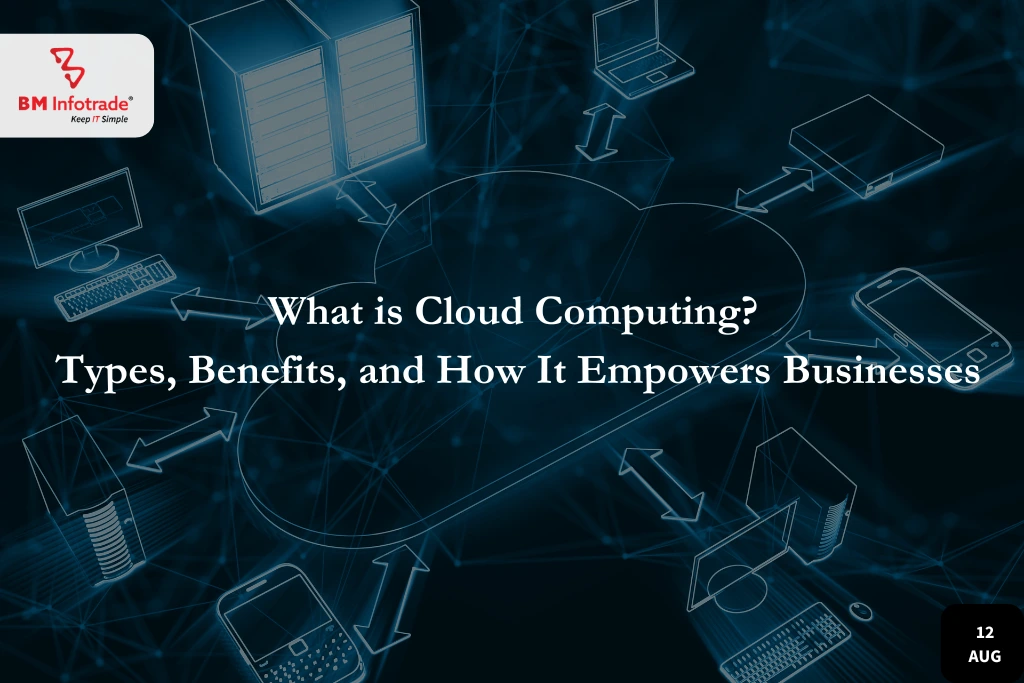


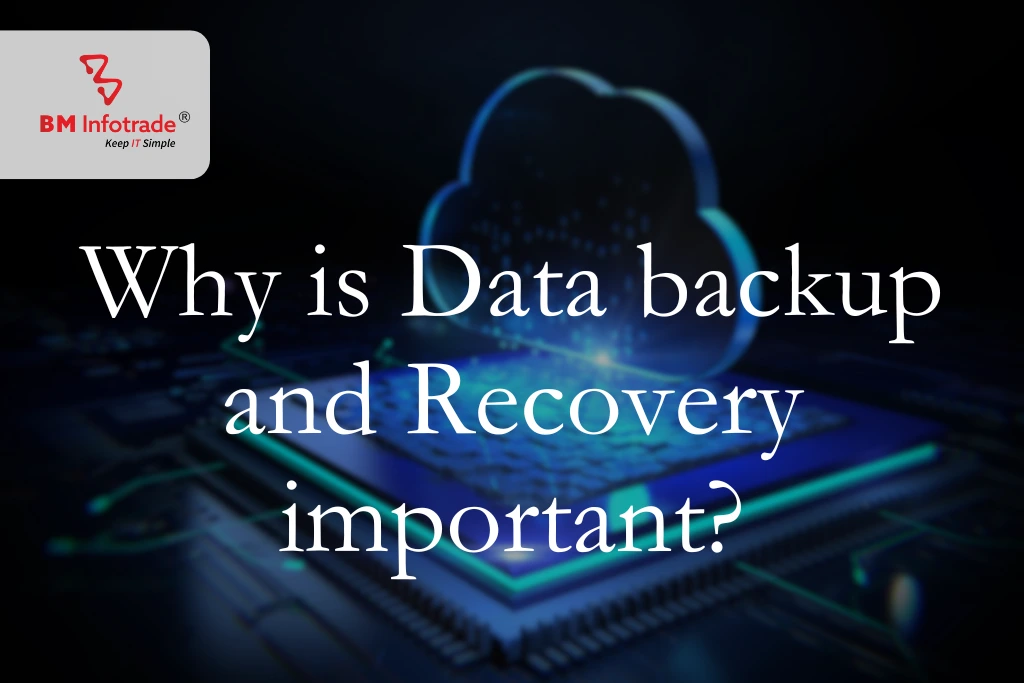


Anshul Goyal
Group BDM at B M Infotrade | 11+ years Experience | Business Consultancy | Providing solutions in Cyber Security, Data Analytics, Cloud Computing, Digitization, Data and AI | IT Sales Leader